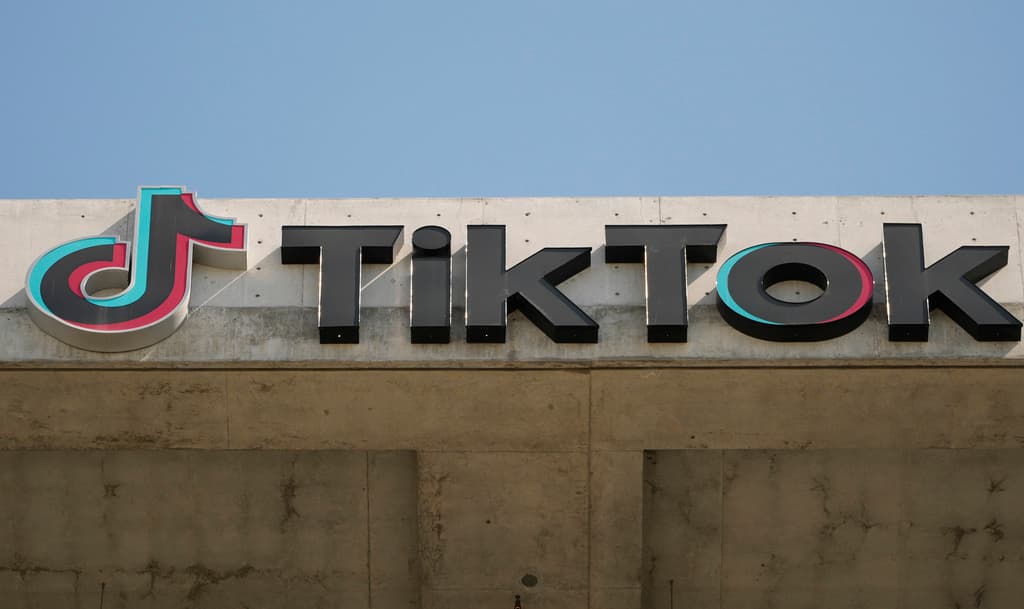Study Finds a Correlation Between TikTok Use and Favorable Views of Communist China’s Human Rights Record
Researchers say there is a ‘distinct possibility that TikTok is a vehicle for CCP propaganda.’

As TikTok fights to keep operating in America, a peer-reviewed study says the popular social media platform tends to make its users view Communist China’s human rights record more favorably.
The Network Contagion Research Institute at Rutgers University released a study into how TikTok “may be manipulated to conceal content critical of China while amplifying narratives that align with Chinese Communist Party objectives.”
Researchers wanted to test whether the suppression of content critical of China would lead users to have a more favorable view of the country. More than 1,200 American adults were recruited to participate in the experiment, and they were asked to share how much time they spend daily on various platforms such as X, TikTok, and Facebook.
“Although the pattern is not completely linear, those who reported spending no time on TikTok held the least favorable views of China’s human rights record,” the study found. “And those who reported spending more than three hours daily on TikTok had the most favorable views.”
The researchers observed that social media users of other platforms reported a more positive view of China’s human rights records as well. However, their study found a stronger correlation between positive views and TikTok use.
The researchers wrote, “Overall, therefore, these analyses confirmed the hypothesis that the more time users spend on TikTok, the more favorable their views of China’s human rights record.”
Along with the positive views of the human rights records, researchers also found that the more time people spend on TikTok, the more likely they are to agree with the statement, “China is one of the most desirable travel destinations in the world.”
The study also examined whether the popular social media platform suppresses anti-CCP content while promoting positive content. Researchers created several accounts to engage with content on the app. They found there was “consistently lower anti-CCP content on TikTok.” However, they also found “a high amount of irrelevant content” across TikTok and other social media platforms.
“These findings suggested that CCP manipulation or influence on TikTok may not exclusively manifest in promoting the CCP’s preferred narratives. Instead, it could be understood as a broader strategy that overwhelms search results with irrelevant or distracting content, effectively diluting the visibility of critical material,” researchers posited.
Additionally, researchers found that “pro-CCP content that emerged from our user journey methodology was amplified disproportionately when compared to anti-CCP content on TikTok, despite massively more user engagement (i.e., likes, comments) with anti-CCP content than with pro-CCP content.” By contrast, researchers said content on other platforms was “approximately proportionate” to the engagement metric.
“Taken together, the findings from these three studies raise the distinct possibility that TikTok is a vehicle for CCP propaganda,” the study said. “The three studies reported here focused exclusively on the content served up by TikTok’s algorithm and did not provide evidence regarding direct CCP interference in TikTok…Nonetheless, such evidence has been reported elsewhere.”
TikTok pushed back on the study’s findings. In a statement to The New York Sun, a spokesman for the social media platform said the study was “clearly engineered to reach a false, predetermined conclusion.”
“Creating fake accounts that interact with the app in a prescribed manner does not reflect real users’ experience, just as this so-called study does not reflect facts or reality,” the spokesman added.
The statement’s comment about “fake accounts” appears to be a reference to the portions of the study that explored what kind of content TikTok’s algorithm promoted. However, it did not address the response of the 1,200 American TikTok users and their views of China.
The study comes days before lawyers for TikTok are scheduled to deliver oral arguments at the Supreme Court in their emergency appeal to block the enforcement of a law that would ban the app unless it is sold before January 19.
Along with concerns about Americans’ privacy, TikTok’s algorithm has come under scrutiny amid concerns that it promotes content favorable to America’s adversaries and “brainwashing” its users.
While TikTok is facing a potential ban in America, Axios reported that the social media platform’s sister app, Lemon8, is sponsoring ads on TikTok encouraging users to move over to Lemon8. Although Lemon8 is also covered by the law that would ban TikTok, Axios suggested the company might be “betting that regulators and app store companies are so focused on TikTok that they won’t pay attention to its other apps.”

